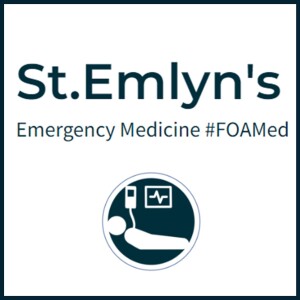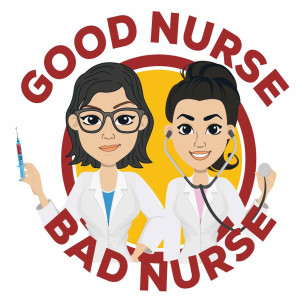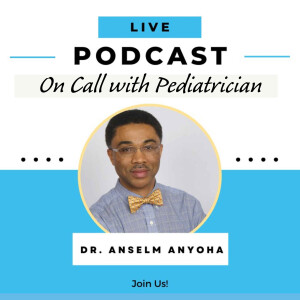
Helping Children Understand Tragedy: Guidance for Parents and Professionals
In a recent St Emlyn's podcast, Iain Beardsell and Liz Crowe, an advanced social worker in a pediatric intensive care unit in Brisbane, explored the critical topic of how to communicate with children during tragic situations. The discussion emphasized the importance of honesty and directness when dealing with topics like illness, death, and other forms of hardship.
Understanding the Context
Historically, children in many cultures were more regularly exposed to the realities of life, such as birth and death. In contrast, modern Western societies often shield children from these experiences. However, Liz asserts that children are more perceptive and resilient than we give them credit for, and attempts to protect them from all emotional pain can be detrimental. Shielding children from the truth can lead to confusion and increased anxiety, as they often sense when something is wrong, even if it is not explicitly communicated to them.
The Importance of Honesty
When difficult situations arise, such as a family member being diagnosed with a serious illness or being involved in an accident, adults may feel the instinct to protect children by withholding information. However, research and experience show that children cope better when they are informed and involved. Children, especially those under ten, can mistakenly believe they are responsible for negative events due to their egocentric worldview. Therefore, it is crucial to communicate clearly and truthfully, helping them understand the situation without assigning blame to themselves.
Balancing Protection and Reality
Parents naturally want to protect their children from pain. However, overprotection can prevent children from learning to deal with disappointment and hardship, essential components of developing resilience. Liz argues that by being overly protective, we may contribute to rising rates of depression and mental health issues among young people. It's essential to prepare children for life's challenges by allowing them to experience and understand difficult emotions in a supportive environment.
Practical Approaches to Communication
When faced with the need to communicate difficult news to children, it's important to empower familiar adults—such as parents or guardians—to have these conversations rather than leaving them to strangers. Here’s a suggested approach:
- Preparation: Prepare the adults involved in the child's life by discussing the importance of honest communication and the possible impacts of the conversation.
- Setting Expectations: Describe what the child might see, hear, and feel to reduce anxiety and set clear expectations.
- Use Specific Language: Avoid euphemisms. Use specific medical terms like "neuroblastoma" or "head injury" to describe the situation accurately.
- Timing and Environment: Choose an appropriate time and setting for the conversation, avoiding moments when the child might be tired or distracted.
- Stick to the Facts: Provide clear, factual information without overwhelming the child. Keep explanations straightforward and allow time for processing.
- Encourage Questions: Allow the child to ask questions and answer them honestly. It’s okay to admit if you don’t have all the answers.
- Ongoing Support: Be available for follow-up conversations, as children may revisit these topics as they process the information.
Using Accurate Language
It’s crucial to use accurate language when discussing severe issues. Avoid using vague terms like "poorly," which can lead to misunderstandings. For example, describing a child as "very sick" without specifying the illness can cause confusion and fear, especially if the child later associates the term with less severe conditions. Using specific medical terminology helps children differentiate between different types of illnesses and their severity.
Long-Term Impact on Children
Many parents and caregivers worry that exposure to tragedy will permanently damage their children. While such experiences can indeed be life-changing, they do not necessarily result in negative outcomes. Children who experience the death of a sibling or parent may grieve and feel pain, but they can also develop greater empathy and understanding of life's complexities. Research indicates that while children in these situations may have higher levels of anxiety, they are not necessarily less successful academically or socially. They often develop a deeper sensitivity and a better understanding of life.
The Role of Counseling and Support
While counseling can be helpful, Liz cautions against making it the default response. Instead, she suggests that families should be encouraged to navigate these challenges on their own, seeking professional help only if they find themselves unable to cope. This approach fosters resilience and self-reliance, teaching children that while therapy is a valuable resource, it's not always necessary.
Conclusion: Building Resilience
Ultimately, difficult conversations with children about tragedy are a necessary part of life. By approaching these conversations with honesty, clarity, and support, we can help children navigate their emotions and develop the resilience needed for future challenges. Whether as parents or healthcare professionals, our role is to guide children through these experiences, providing the tools and understanding they need to grow and thrive.
At St Emlyn's, we believe that while we can't shield children from all of life's difficulties, we can help them face these challenges with courage. The experiences that children go through, even the painful ones, can serve as opportunities for growth and learning. With the right support, children can emerge from these experiences stronger and better equipped to handle life's complexities. Our goal is to create a safe space for children to express their feelings, ask questions, and ultimately, develop the resilience they need to navigate the ups and downs of life
More Episodes
Ep 253 - Highlights from the London Trauma Conference 2024
 2024-12-11
2024-12-11
 659
659
Ep 252 - ECMO in Trauma with Chris Bishop at Tactical Trauma 24
 2024-12-04
2024-12-04
 1.1k
1.1k
Ep 251 - Bad Behaviours in Teams with Liz Crowe at Tactical Trauma 24
 2024-11-27
2024-11-27
 1.3k
1.3k
Ep 250 - Monthly Round Up September 2024 - Patient Experience in the ED, Dirty Adrenaline, and More!
 2024-11-20
2024-11-20
 1.3k
1.3k
Ep 249 - Care in the Hot Zone with Claire Park at Tactical Trauma 2024
 2024-11-14
2024-11-14
 1.4k
1.4k
Ep 248 - Prehospital eCPR with Alice Hutin at Tactical Trauma 2024
 2024-11-06
2024-11-06
 1.4k
1.4k
Ep 247 - August 2024 Round-Up - Goldilocks Moments, Nasal Analgesia, and Public Health in the ED
 2024-10-30
2024-10-30
 1.3k
1.3k
Ep 246 - Simulation for Elite Team Performance with Andrew Petrosoniak at Tactical Trauma 2024
 2024-10-23
2024-10-23
 1.5k
1.5k
Ep 245 - Leading through failure with Kevin Cyr at Tactical Trauma 2024
 2024-10-18
2024-10-18
 1.9k
1.9k
Ep 244 - July 2024 Monthly Update - Chest Pain, REBOA, Lidocaine patches and lots of paediatric emergency medicine
 2024-10-06
2024-10-06
 1.5k
1.5k
Ep 243 - The Subarachnoid Haemorrhage in Emergency Department (SHED) Study
 2024-09-26
2024-09-26
 1.8k
1.8k
Ep 242 - Prehospital Neuroprotection with Ed Langford at PREMIER 2024
 2024-08-21
2024-08-21
 1.6k
1.6k
Ep 241 - Paediatric Palliative Care with Tim Warlow at PREMIER 2024
 2024-08-14
2024-08-14
 1.2k
1.2k
Ep 240 - June 2024 Monthly Round Up - Nebulised Ketamine, Risky Intubations, Better Presentations, DSED, Preoxygenation and more
 2024-08-07
2024-08-07
 1.8k
1.8k
Ep 239 - Button Battery Ingestion with Francesca Steadman at PREMIER 2024
 2024-07-31
2024-07-31
 1.4k
1.4k
Ep 238 - Positive and Negative Predictive Values: Critical Appraisal Nugget
 2024-07-24
2024-07-24
 1.3k
1.3k
Ep 237 - Hybrid Closed Loop Insulin Pumps with Nicola Trevelyan at PREMIER 2024
 2024-07-17
2024-07-17
 1.3k
1.3k
Ep 236 - Occlusive Myocardial Infarction, ECGs and AI with Steve Smith
 2024-07-10
2024-07-10
 1.9k
1.9k
Ep 235 - Eating Disorders in the Emergency Department with Anna Kyle at PREMIER 2024
 2024-07-02
2024-07-02
 1.4k
1.4k
Ep 234 - May 2024 Monthly Round Up - RCEM conference highlights, being EPIC and more
 2024-06-27
2024-06-27
 1.4k
1.4k
Create your
podcast in
minutes
- Full-featured podcast site
- Unlimited storage and bandwidth
- Comprehensive podcast stats
- Distribute to Apple Podcasts, Spotify, and more
- Make money with your podcast
It is Free
You may also like

Good Nurse Bad Nurse


The Relaxback UK Show


On Call With Dr. Anselm Anyoha


The Dr. Hyman Show


The Peter Attia Drive

- Privacy Policy
- Cookie Policy
- Terms of Use
- Consent Preferences
- Copyright © 2015-2024 Podbean.com


 iOS
iOS Android
Android